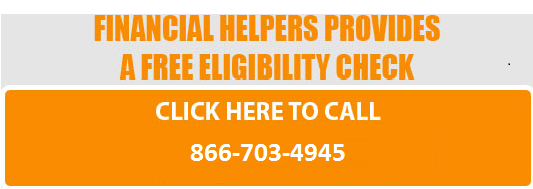Trump Continues Plan to Forgive $7.7 Billion Dollars Of Student Debt
On Tuesday, President Trump announced that he was going to continue the program former President Obama began 4 years ago. The plan to forgive $7.7 billion in federal student loans held by an estimated 387,000 Americans. Call 1-855-885-1609 to see if you qualify.
Trump recently made the statement
“Although President Obama and myself don’t see eye-to-eye on everything, we do agree on the fact that the Education system has failed our students. We have just reopened official federal phone lines and operators are standing by to help students erase their Student Debt.”.
This is extremely fortunate, but luckily there is still time to consolidate your loans, or in many cases get your loans completely forgiven.
Call 1-855-885-1609 to see if you qualify.
This is a big deal. Because there are millions of Americans that are struggling with student loan debt. You may also if you’re struggling with a financial hardship.
How Does it Work?
The government would like as many people as possible to lower their student loan payments. There are many programs that can either forgive your student loan or dramatically lower your student loan payment down to $0.
I stay up crying every night thinking about how I’m going to provide a better future for my child.
“When I first signed up for college I didn’t think anything about taking out student loans. They told me they were ‘grants.’ After I graduated I haven’t been able to find a job. Now the loan companies call and harass me every day for their payments I can’t afford. Call 1-855-885-1609 to see if you qualify.
The worst part is my parents co-signed my loan and now they’re getting harassed and are worried about their retirement. I feel like I ruined their life and my life as well. I can’t buy a car, buy a house or save for my future. I stay up crying every night thinking about how I’m going to provide a better future for my child. I thought I was going to live the American dream this is an absolute nightmare.”
What You Can Do About It
The time to act is now. This program may end any time without notice. If you or a loved one is struggling with crippling student loan debt it’s not your fault and you’re not alone. Call 1-855-885-1609 to see if you qualify.
Over 40 Million Americans are currently struggling with their student loans. You can get help simply call the number below to speak with a student loan forgiveness counselor. Every day you wait your student loan is getting bigger.
—– Disclaimer —– THIS IS AN ADVERTORIAL AND NOT AN ACTUAL NEWS ARTICLE, BLOG, OR CONSUMER PROTECTION UPDATE
*We are dedicated to bringing readers valuable information which can help them accomplish their financial and lifestyle goals. Our disclaimer is that this site does receive compensation for product reviews and referrals or purchases made through our links. This page is an advertisement/advertorial. The story depicted here is for demonstration purposes only and everyone’s results may vary. We hope you find our online resource informative and helpful.
This site is in no way affiliated with any news source. This site contains affiliate and partner links. This website and the company that owns it is not responsible for any typographical or photographic errors. If you do not agree to our terms and policies, then please leave this site immediately. All trademarks, logos, and service marks (collectively the “Trademarks”) displayed are registered and/or unregistered Trademarks of their respective owners. Contents of this website are copyrighted property of the reviewer and/or this website.

